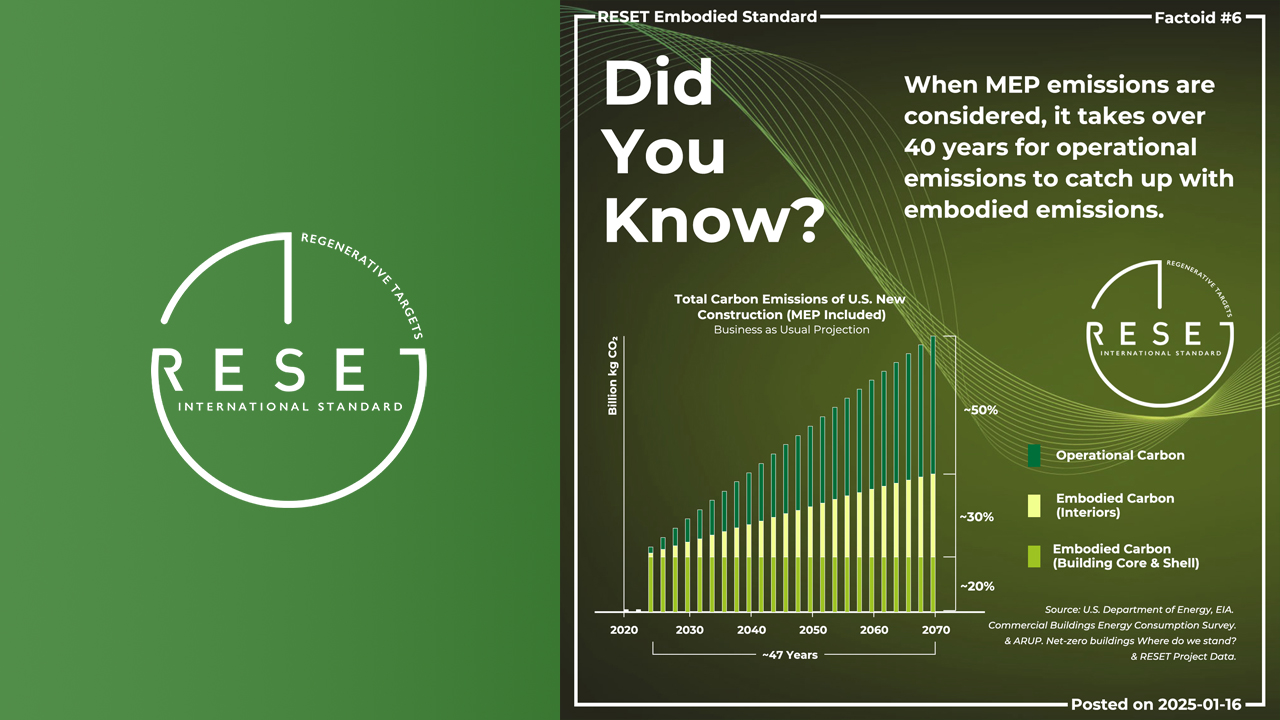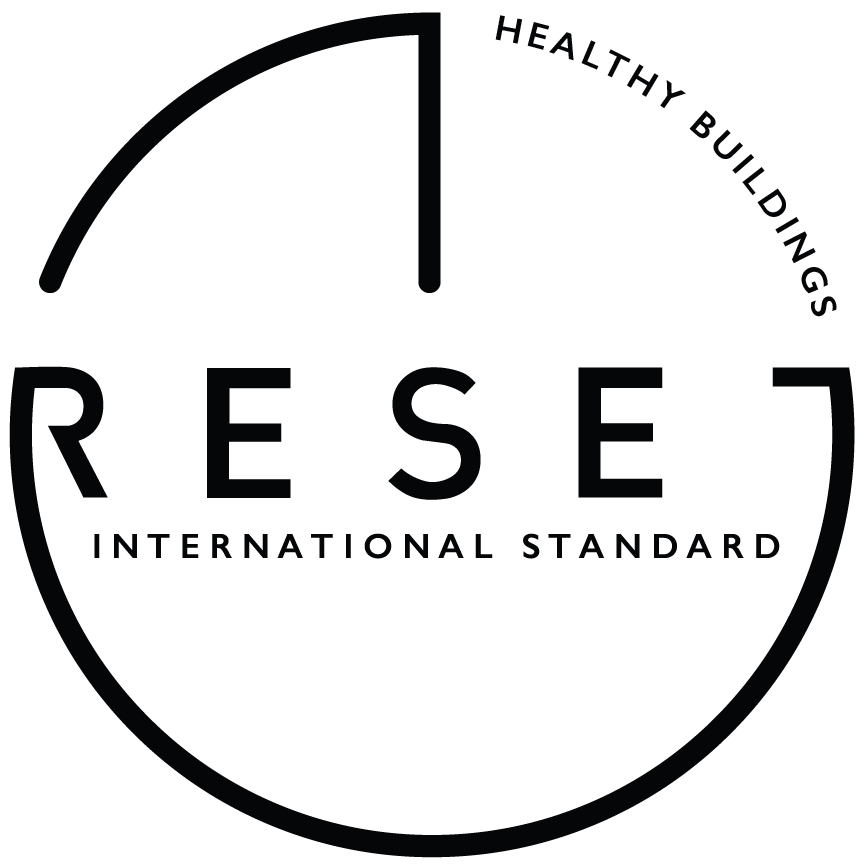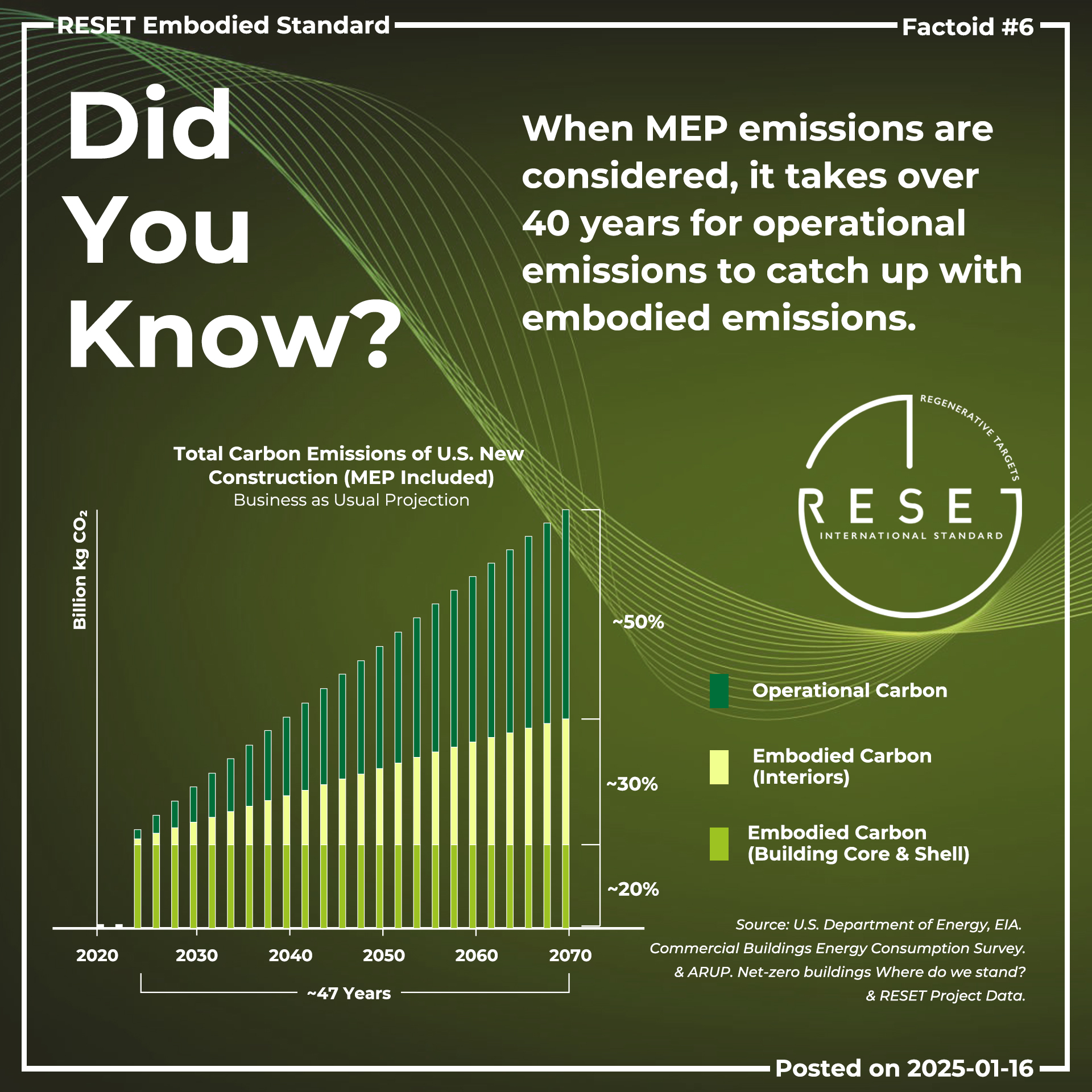Factoid #6 - Embodied vs. Operational Impact when including Interiors & MEP

In Factoid #4, we explore how operational carbon emissions take approximately 23 years to catch up with embodied carbon emissions. Factoid #5 highlighted that the embodied carbon of interiors including MEP systems reaches as high as 304.9 kgCO₂e/m², with MEP embodied emissions making up approximately 25% of that.
When both core and shell and interior MEP systems are included in the calculation, how long would it take for operational emissions to surpass embodied carbon?
Research from ARUP shows that the embodied carbon of core and shell MEP systems accounts for 20% of the total embodied carbon of the core and shell.
Pairing that with RESET projects data, operational carbon emissions take a surprising 47 years to equal the embodied carbon emissions when the impact of MEP emissions of both the core & shell and interiors are included, which is 2x the time it took when MEP emissions are not included.
Both interiors and MEP play a critical role in lowering carbon emissions in real estate. Tenants and landlords can collaborate to address these challenges by leveraging the RESET Embodied Carbon Standard, which provides a framework for accurately measuring, benchmarking, and reporting embodied carbon impact. Supported by a powerful materials database, it enables accurate quantification of carbon emissions from both MEP and building materials.
Stay connected with us on LinkedIn or subscribe to our newsletter at https://reset.build/subscribe for more Factoids!
To explore previous data, please visit: https://reset.build/newsroom/322.
About RESET®
RESET® is an international performance data standard and certification program, created and managed by GIGA, that offers a pathway towards decarbonization by developing actionable and measurable strategies towards regenerative sustainability and health for the built environment. RESET takes a quantitative and holistic approach to embodied and operational data by combining the development of databases, data collection, continuous monitoring, and cloud software to automate reporting and analytics, which then generates opportunities for iterative improvement and optimizations.
The RESET Embodied Standards include Embodied Carbon, Circularity, and Health, while the RESET Operational Standards include Air, Energy, Water, and Waste.
For more information about RESET, please visit: https://www.reset.build/

